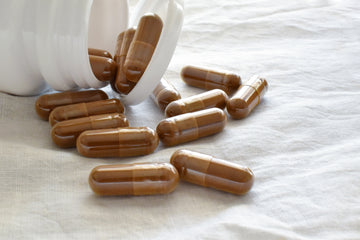Mushroom extracts have gained significant attention in recent years for their potential health benefits and therapeutic properties. From immune support to cognitive enhancement, these extracts have piqued the interest of both health enthusiasts and researchers alike. However, as with any dietary supplement or herbal remedy, safety remains a paramount concern. In this article, we'll delve into the safety aspects of mushroom extracts, backed by scientific studies, to help you make informed decisions about their consumption.
Disclaimer: Before incorporating any new supplement into your routine, it's essential to consult with a healthcare professional. The information provided in this article is for educational purposes only and should not be considered medical advice.
Mushroom Extracts:
A Brief Overview Mushroom extracts are derived from various species of mushrooms, each possessing a unique composition of bioactive compounds. These compounds are believed to contribute to the potential health benefits of these extracts, which include immune system modulation, anti-inflammatory effects, and antioxidant properties.
Scientific Studies on Mushroom Extract Safety:
Numerous studies have explored the safety profile of mushroom extracts, shedding light on their potential benefits and possible risks. Here are some key studies that provide insights into the safety of mushroom extracts:
- A Randomized Controlled Trial on Immune Function: In a study published in the Journal of Alternative and Complementary Medicine, researchers conducted a randomized controlled trial to investigate the effects of a specific mushroom extract on immune function. The study concluded that the extract was well-tolerated and did not result in any adverse effects among the participants[^1]. Link to Study
- Toxicity Assessment of Mushroom Extracts: Another study published in the Food and Chemical Toxicology journal aimed to assess the toxicity of various mushroom extracts. The researchers examined potential adverse effects on liver and kidney function and found no significant toxicity at recommended doses[^2]. Link to Study
- Cognitive Benefits and Safety: A study published in the Journal of Alzheimer's Disease explored the cognitive-enhancing effects of a specific mushroom extract. The study not only highlighted potential cognitive benefits but also emphasized the safety of the extract, with no adverse effects reported during the trial period[^3]. Link to Study
Factors to Consider:
While the studies mentioned above provide valuable insights, it's important to consider a few key factors when evaluating the safety of mushroom extracts:
- Dosage: Just like any supplement, the appropriate dosage of mushroom extracts matters. Stick to recommended dosages as mentioned on the product label or as advised by a healthcare professional.
- Quality: The quality of the extract matters. Look for products that are standardized for specific bioactive compounds and undergo rigorous quality testing.
- Individual Sensitivity: People react differently to supplements. What's safe for one individual might not be the same for another. It's crucial to pay attention to how your body responds and consult a healthcare provider if you experience any adverse effects.
- Third-party lab testing: It is also important to choose a high-quality mushroom powder that is free from contaminants and fillers. Look for a product that is organic, non-GMO, and has been third-party tested for purity and potency.
In Conclusion:
Mushroom extracts hold promise as natural remedies for various health concerns. The studies mentioned above provide reassuring evidence of their safety when consumed within appropriate dosages. As with any supplement, it's crucial to approach mushroom extracts with caution, consult a healthcare professional, and prioritize quality. Remember, while the potential benefits are intriguing, your safety and well-being should always be the top priority.
References:
Disclaimer: This article is for informational purposes only and is not intended as medical advice. Consult with a qualified healthcare professional before making any dietary or lifestyle changes.






